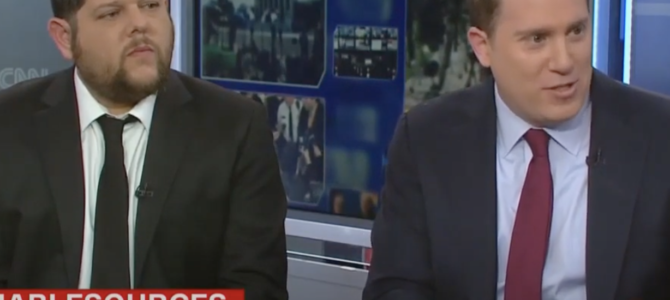
The correction by The Washington Post concerning false information about a phone call between former President Donald Trump and the Georgia secretary of state’s chief investigator is no anomaly. The neglect of truth and preference for anonymous sources is deeply ingrained in the corrupt left-wing media’s strategy.
“You will notice that establishment media errors, omissions, mistakes, and outright lies always slant one way — against me and against Republicans. Meanwhile, stories that hurt Democrats or undermine their narratives are buried, ignored, or delayed until they can do the least harm,” Trump said in a statement Monday in response to widespread corrections from The New York Times, CNN, ABC, and so on.
The Washington Post correction struck right to the core of why journalism is dying and has been for years, and it served as a reminder of the media’s lack of ethics and standards throughout the Russian collusion scramble. Here are five major Trump-Russia stories the media botched.
CNN: The WikiLeaks Email
CNN relied on anonymous sourcing to falsely conclude the date President Donald Trump and Donald Trump Jr. received an email to access WikiLeaks documents. The outlet claimed the email was leaked and decrypted information that was not yet released to the public.
Senior congressional correspondent Manu Raju and politics reporter Jeremy Herb dated the email Sept. 4, 2016, which would have been more than a week before WikiLeaks released the documents to the public. In reality, the Trumps obtained the email on Sept. 14, a day after the documents were made public. Raju and Herb relied on two separate anonymous sources.
Hours later, CNN corrected its prior article but did not issue a retraction, nor had CBS. Within an hour of CNN publishing the report, Ken Dilanian of MSNBC claimed he had “independently confirmed” the misguided scoop.
“CNN’s initial reporting of the date on an email sent to members of the Trump campaign about WikiLeaks documents, which was confirmed by two sources to CNN, was incorrect,” CNN said in a statement. “We have updated our story to include the correct date, and present the proper context for the timing of email. The new information indicates that the communication is less significant than CNN initially reported.”

After CNN reported on this alleged controversy, The Washington Post, The Wall Street Journal, and The Daily Caller cross-referenced documents and clarified the proper date.
ABC: Michael Flynn’s Russian Relationship
ABC’s chief investigative correspondent Brian Ross stated in a live “special report” on Dec. 1, 2017, that Trump’s former national security adviser Michael Flynn was set to testify that he was ordered by the president to contact Russians about foreign policy while Trump was still a candidate.
That same day, ABC issued a “clarification” asserting that the directive by Trump to Flynn was while Trump was in office, fundamentally changing the narrative. The erroneous scoop suggested that Trump did in fact interfere in U.S. foreign policy at the same time that then-President Barack Obama unleashed sanctions on Russia.
The next day, ABC announced its four-week suspension for Ross without pay. ABC then officially retracted the story. According to reports, it took longer than usual to issue a retraction because Ross was unable to get in touch with his confidential source until several hours from the time of the clarification.
“The reporting conveyed by Brian Ross during the special report had not been fully vetted through our editorial standards process. As a result of our continued reporting over the next several hours ultimately we determined the information was wrong and we corrected the mistake on air and online,” ABC said in a statement.
Seven months after the retraction, Ross left ABC. Ross’s story made the stock market tank 350 points at one point, showing the extent to which malfeasant journalists with power can pull the levers in society.
“Congratulations to @ABC News for suspending Brian Ross for his horrendously inaccurate and dishonest report on the Russia, Russia, Russia Witch Hunt. More Networks and ‘papers’ should do the same with their Fake News!” Trump tweeted.

NYT: 17 US Intelligence Agencies ‘Agree’
On June 25, 2017, The New York Times published a report that had been debunked nearly a month prior by The Daily Caller. In the article, the Times reasserted the false claim that 17 U.S. Intelligence agencies all concurred that Russia meddled in the 2016 presidential election.
This lie had been peddled by left-leaning outlets for about six months prior. See here and here, for instance. Four days after the Times ran its article, a White House memo confirmed that only four agencies had actually “approved” of the sweeping assessment.
The Daily Caller report, published June 1, referenced Hillary Clinton’s statement in an interview that week about Russian interference in the election. “Read the declassified report by the Intelligence Community that came out in early January,” Clinton said. “Seventeen agencies, all in agreement — which I know from my experience as a senator and secretary of state is hard to get — they concluded with ‘high confidence’ that the Russians ran an extensive information war against my campaign to influence voters in the election.”
The report Clinton referenced, however, which was published on Jan. 7, 2017, was supported by the FBI, the CIA, and the National Security Agency — three agencies, not 17. The Times also entirely neglected the fact that former Director of National Intelligence James Clapper testified on May 8 to debunk the proposed number of agencies.
The Times corrected its article four days later. The Associated Press published a “clarification” on June 30 regarding several stories. Other outlets followed suit, although USA Today has yet to issue anything on this false piece from October 2016. Curiously, USA Today issued an edit on the article on Dec. 16, 2016, nearly two months after its publication. The edit has not been clarified.
CNN: Scaramucci and the Russian Direct Investment Fund
In June 2017, CNN reported that then-President Trump aide Anthony Scaramucci was linked to the Russian Direct Investment Fund. The story claimed that Senate investigators were monitoring a sum of $10 million in the fund, with which Scaramucci supposedly had activities.
A day later, CNN officially retracted the story, implying that the article was shoddily sourced. “On June 22, 2017, CNN.com published a story connecting Anthony Scaramucci with investigations into the Russian Direct Investment Fund. That story did not meet CNN’s editorial standards and has been retracted. Links to the story have been disabled. CNN apologizes to Mr. Scaramucci,” the outlet said in a statement.
An editor's note from CNN https://t.co/YssSkRP9C5 pic.twitter.com/LrS7L3nz5R
— CNN Politics (@CNNPolitics) June 24, 2017

Days later, three CNN staffers resigned over the retraction: Thomas Frank, Eric Lichtblau, and Lex Harris. Scaramucci called Washington bureau chief Sam Feist and floated the idea of a lawsuit, according to Politico.
Due to this and other editorial blunders relying on anonymous sourcing, CNN claimed it was imposing “stricter standards.” Buzzfeed News obtained an internal memo sent to all staff by CNNMoney executive editor Rich Barbieri. “No one should publish any content involving Russia without coming to me and Jason [Farkas],” Barbieri said, referencing CNN Business’s vice president.
Buzzfeed: Trump’s Direction to Lie
In a vague, poorly-sourced story, Buzzfeed News claimed in January 2019 that Trump attorney Michael Cohen informed investigators employed under special counsel Robert Mueller that Trump “directed” him to lie in regard to contact he made with a Russian official.
Shortly after the publishing of the report, Mueller’s office released a statement fully denying it. It was the first time such a statement had been provided in the more than one and a half years of his investigation.
“BuzzFeed’s description of specific statements to the Special Counsel’s Office, and characterization of documents and testimony obtained by this office, regarding Michael Cohen’s Congressional testimony are not accurate,” said a spokesman for the special counsel in a statement.
The outlet did not use specific dates to back up its claims nor actual quotations from Cohen’s talks with Trump. Buzzfeed has continued to decline to comment on which documents it used to create the report. Upon the report’s publication, Democrats insisted that Trump most certainly was guilty of obstruction of justice or suborned perjury.
“In the interest of protecting … sources, we aren’t going to speak further on the details of who saw what and when, beyond what’s in the reporting,” a Buzzfeed spokesman told The Daily Caller at the time.
In an interview with CNN, Buzzfeed journalist Anthony Cormier admitted he had not even seen the so-called documents he referred to in the article. “I’ve not seen it personally, but the folks that we’ve talked to, the two officials we’ve spoken to, are fully, 100 percent read in to that aspect of the special counsel’s investigation,” Cormier said.
BuzzFeed's @a_cormier_ told CNN this morning that they have not actually seen the documents they're reporting on.
But his colleague, @JasonLeopold, who cowrote the piece, just told MSNBC: "I’ll just say we’ve seen documents, we’ve been briefed on documents." pic.twitter.com/cQtlj0SdYo
— Tom Elliott (@tomselliott) January 18, 2019
The other journalist, Jason Leopold, flip-flopped several times on who had seen which documents and when. Buzzfeed News still has not clarified.
“We can’t get into, like, the details there,” Cormier said two days later to CNN’s Brian Stelter.
Two reporters on the debunked BuzzFeed story have conflicting statements:
One reporter said he *saw documents* proving the story true.
The other said he did not see any documents.
CNN asks about the discrepancy:
BuzzFeed: "We can't get into, like, the details there"
(!??!) pic.twitter.com/ysaolf3BNd
— Benny (@bennyjohnson) January 20, 2019
Shortly after Mueller’s statement, The Washington Post said the Buzzfeed report was “almost entirely incorrect.” The New York Times noted that “several reporters who cover the Justice Department said they interpreted the statement” by Mueller “as a full denial of BuzzFeed’s conclusions.”
We at The Post also had riffs on the story our reporters hadn't confirmed. One noted Fox downplayed it; another said it "if true, looks to be the most damning to date for Trump." The industry needs to think deeply on how to cover others' reporting we can't confirm independently. https://t.co/afzG5B8LAP
— Matt Zapotosky (@mattzap) January 19, 2019
If you're one of the people tempted to believe the self-evidently laughable claim that there's something "vague" or unclear about Mueller's statement, or that it just seeks to quibble with a few semantic trivialities, read this @WashPost story about this https://t.co/0io99LyATS pic.twitter.com/ca1TwPR3Og
— Glenn Greenwald (@ggreenwald) January 19, 2019
“It was remarkable what we saw happening for 24 hours in the media, on the basis of the report that appeared in BuzzFeed,” then-Vice President Mike Pence said to Chris Wallace that Sunday. “It’s one of the reasons why people are so frustrated with many in the national media.”
Buzzfeed has not corrected nor retracted this story. There is no indication that it is factual.









